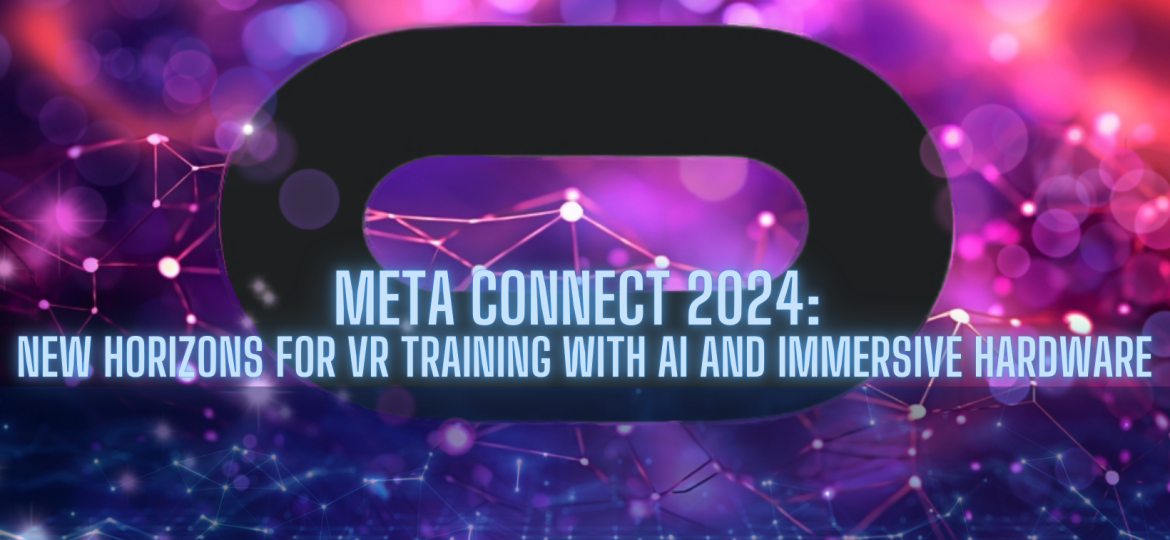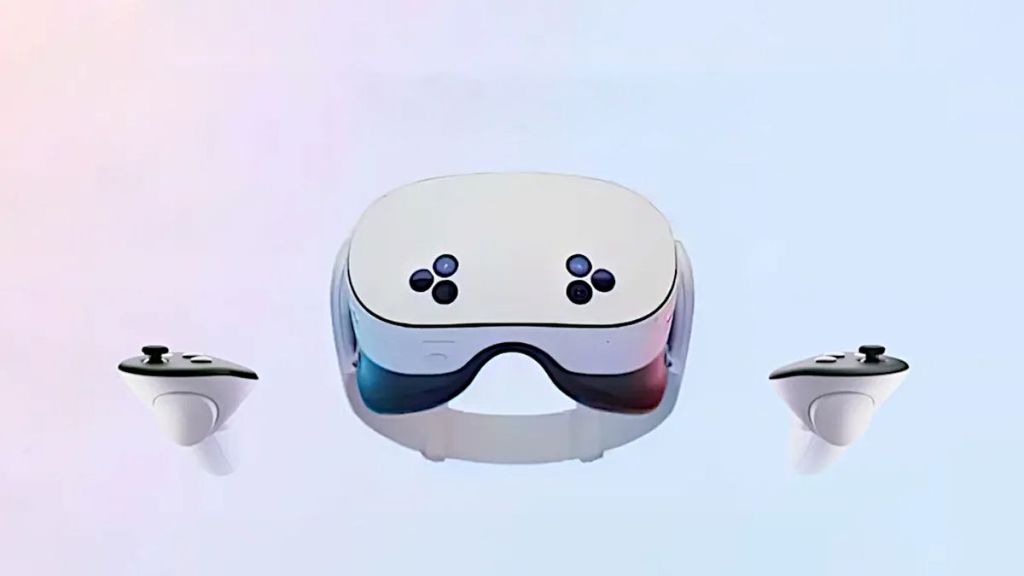
Meta Connect 2024, held on September 25th and 26th, was highly anticipated by tech enthusiasts and developers alike. At Mersus Technologies, we were particularly interested in any announcements from Meta that could impact the VR training industry, including hardware improvements or advancements that would aid in the development and deployment of our apps. There have been rumours circulating for a while about a new, affordable, and powerful headset, and anything that boosts headset ownership would, of course, be welcomed by all VR developers! As one of the leading manufacturers of VR hardware, Meta’s announcements have far-reaching implications for the entire AR, VR, and XR landscape. Naturally, there was also significant curiosity around how advancements in AI would be integrated into Meta’s infrastructure and products. So, what were the key takeaways from the conference? In this blog, we will highlight some of the major announcements which will affect our industry.
Orion
One of the most talked-about announcements at the conference was the unveiling of the Orion AR glasses. Although the product has been in development for over a decade and is still far from commercial release, it captured a lot of attention due to its advanced AR capabilities, packaged in a design that more closely resembles regular glasses. Orion features gesture controls through a revolutionary wristband that detects electrical signals from the user’s muscles, allowing for intuitive and seamless interaction.
The glasses also boast impressive AI capabilities, as demonstrated in a live demo where the wearer looked at a group of ingredients, and the glasses instantly identified them and suggested possible recipes. Other applications showcased included immersive gaming experiences and making calls, with the user’s avatar appearing in real-time. The combination of AI, AR, and natural gesture control is set to redefine how we interact with both digital and physical environments, making Orion a glimpse into the future of wearable tech.
Meta Quest 3S
The long-rumoured affordable VR headset, the Quest 3s, was finally unveiled at Meta Connect 2024. While the Quest 3s retains the same fresnel lenses as its predecessor, the Quest 2, the pricier Quest 3 boasts more advanced pancake lenses, offering superior visual clarity. Interestingly, the Quest 3s features slightly better battery life than the Quest 3, which could appeal to users prioritising longer play sessions.
Although the Quest 3s does not match the visual quality of the Quest 3, it still offers a significant upgrade over the Quest 2, particularly for budget-conscious consumers. For VR companies like ours, Meta’s introduction of an affordable option holds the potential to accelerate widespread adoption of VR, helping to shift it from a niche technology to a mainstream platform. The timing of the release, just ahead of Christmas, could be pivotal in boosting VR headset ownership, and it will be fascinating to see if it leads to a broader increase in users.

AI developments
Meta made it clear at Meta Connect 2024 that they aim to become a dominant force in the AI space. In the months leading up to the conference, Meta has been integrating AI into its social media platforms, even amid some user resistance. At the event, Meta discussed more specific and practical future applications of AI, with a focus on language translation. One of the most intriguing use cases is real-time translation, which could help users overcome language barriers in conversations—a feature that could prove immensely popular and useful. Meta AI’s advancements now include voice recognition in real time, allowing seamless communication across languages. This could revolutionise global interactions on their platforms, offering new possibilities for user engagement and connectivity. With AI continuing to evolve, this is just one of many future applications Meta is likely to explore.
Improved Avatars
Meta’s avatars have faced widespread criticism in the past due to their simplistic design, often seen as lifeless or lacking realism. It’s no surprise that the company has invested heavily in improving them over the last few years. Historically, one of the biggest challenges in presenting users or NPCs in VR was the “dead eyes” effect. Early avatars had a vacant stare, which Meta tried to mask by adding visors or glasses to make them appear less eerie. Another major issue was the lack of leg tracking, which led to the creation of legless avatars—a design choice that was widely mocked.
The new avatars revealed at Meta Connect 2024 represent a significant upgrade. While they still maintain a cartoonish aesthetic, they now feature full bodies and come with a much greater range of customization options, such as diverse facial structures, body sizes, and clothing styles. These improvements, combined with the introduction of more dynamic and expressive animations, bring a level of personality that was previously missing. From our point of view, these avatars update automatically into existing VR experiences without any extra development work, which is convenient. This overhaul marks a step towards more immersive and relatable virtual experiences, signalling Meta’s commitment to creating a richer, more engaging immersive ecosystem for its users.
All in all, Meta Connect 2024 was a confident and successful conference, with several exciting developments for the VR and AI industries.The introduction of the Quest 3S headset and Orion smart glasses was met with enthusiasm, especially for the Quest 3S’s affordability and their potential to increase accessibility to immersive technologies. For businesses like ours, these innovations present promising opportunities for integrating new hardware into our VR training solutions.
Beyond the specific hardware announcements, it’s clear that Meta is continuing its shift from being primarily a social media company to becoming a leader in immersive technology and AI. Their ongoing investment in research and development, particularly in areas like mixed reality and AI-driven wearables, signals a long-term commitment to shaping the future of these technologies. This dedication can only benefit the broader immersive technology sector, encouraging further growth and innovation.